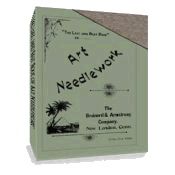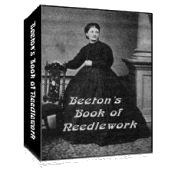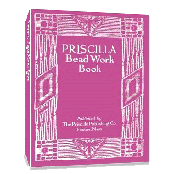Little Christmas, or the
Feast of the Star
Little Christmas? No way! I want mine as big and memory making as I can get. Oh, wait… we’re not talking about the same Christmas… or did you already know that? The following article was written in 1884, and as always, has been edited for use on this site.

Little Christmas, or the Feast of the Star
WE have too few days of nothing but pleasure in this age to afford to dispense with any opportunity to make merry that is allowed us, and for that reason, we suppose, there has been a growing disposition among us to observe Twelfth-night, often better known as Little Christmas, or as the Lesser Epiphany. Of late years little social gatherings have honored this day, and frequently churches have had Christmas trees upon it for other than their own Sunday-school children and society — for the sailors of the port, for instance, or for the vagrants belonging to no church or society. It is the day celebrated by the Greek Church, and indeed by all the Christian Church, at one time, as Christmas-day, and it is now known as the end of the Christmas festivities, as the anniversary of the homage of the Wise Men, or Christ’s baptism, and of the miracle of Cana, and has been kept as a festival of its own for more than a thousand years.
It has always been a rather domestic sort of celebration that has attended it, although in England its eve is the eve of bonfires, sometimes fifty or sixty of these fires being seen within eye-shot of each other in the high places of the wheat fields, the people round one answering the halloo of those around another till it reaches distant counties; usually the bonfires are in a little cluster of twelve, to signify the Saviour and the Apostles, that representing JUDAS being kicked out earlier.
One of the sweetest of the rural customs in connection with Twelfth-night, which, although belonging to outdoors, has quite a domestic side, is that of the south of England farmer with his laborers, each armed with a jorum of cider, going after dark to the best tree in the apple orchard, where, encircling it, they sing a roistering toast, not forgetting to bedew the apple-tree with some of the cider, the party then returning to the house to find the doors bolted and no admission given till what is on the spit can be guessed, which is usually something of which the party are glad to partake — a custom chiefly pleasant from it recognition of the apple-tree as a sort of guardian genius of home, through its domestic character, the brooding shape of its branches, and its prolific abundance in fruit.
In our own more inclement climate than that of the south of England — that is, in the regions where the apple-tree and wheat field best flourish — these out-door exercises are not practicable, but the in-door eating of the Twelfth-night cake with a ring in it is a favorite form of entertainment. Sometimes, instead of a ring, there is a bean in it, giving luck to the finder; sometimes, when the affair is more elaborate, there is a bean for the king, a pea for the queen, and a clove for the knave of the company, who each has to assume the character of either of the three articles happens to be found in the portion of cake he eats or crumbles.
Once in the heyday of MARY STUART we have a pretty twelfth-night scene recorded, in which she clothed and crowned Mary Fleming, on of the “Queen’s Maries,” when the lot felon that damsel, putting on her “a gown of cloth of silver, and her head, her neck, her shoulders, and rest of her body, so beset with stones that more in our whole jewel-house was not to be had. The cheer was great.” Afterward, in the great courts, the day became an occasion for gambling, large sums of money then changing hands.
Twelfth-night is still a national holiday in England; the Lord Mayer and aldermen and the guilds once went in great civic procession to hear a sermon at St. Paul’s; and only a century ago the King, with herald and pursuivants and Knights of the Garter in their orders, offered gold, myrrh, and frankincense on the altar of the Royal Chapel at St. James’s; and although her Britannic Majesty does not keep up the custom, we believe that two of the Lord Chamberlain’s gentlemen carry a box ornamented with a star, for the star in the East, holding the traditional articles, and placing it in the alms dish.

It seems rather a pity to let the remembrance of such a day die out, not alone for the sake of our own needs, nor for that of its gray prestige and popularity, but because also it is connected with some of the most picturesque of all the legendary lore of religion — the coming of the caravan of the Kings of the East, of little MELCHOIR with gold from Nubia, of BALTHAZAR with incense from Chaldaea, of JASPER, a black Ethiop of great stature, with myrrh from Tarshish, all wearing the rich ornaments of royal array, and accompanied by mules, camels, and horses, loaded with treasure, and followed by a multitude up from the wilderness and the kingdoms of all ancientness, to worship the new-born Babe not yet a fortnight old.

Our immediate ancestors in this country were not all Puritans, and their memories meet with no filial disrespect in our renewing an observance of those days which the Puritans disregard, like Christmas and May-day. But even had they all been of rigorous and ascetic training, it is certainly well, when those that went before us committing the same error; and it does no harm to add to our lives something of the picturesque when we can get it by such simple means as holding the little Twelfth-night festivals and the like.
To children there are few pleasures — excepting the great one of Christmas itself, which of course eclipses for them all those of the round year — that exceed the jollity of the evening of the ring cake, with its excitement, suspense, cupidity, and gratification. And it is, after all, for the children of the family that most of its movements are undertaken; and with this movement the children of a larger growth are fain to take their share in the pleasant follies of enjoying themselves and making others enjoy.
And while to all the world relaxation and pleasure are beneficial, more than to any others are they delightful to those who cherish all the emblems of faith and Christian worship, and who in making the observance of its anniversaries a time of rest and joy, are glad to be able to add to the list of their domestic celebrations that of the Feast of the Star.
Return to top of Little Christmas or Feast of the Star page.
Return to Victorian Christmas page.
Return to Home page.



 433 pages!
433 pages!

